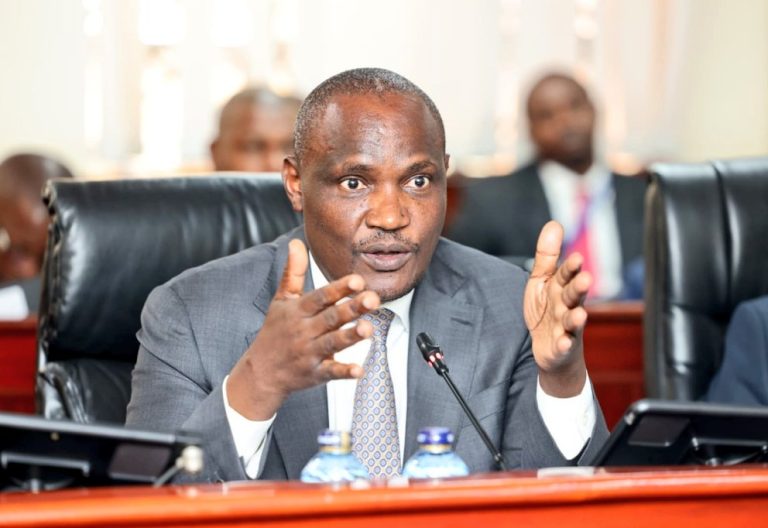Treasury Cabinet Secretary John Mbadi has moved to clarify remarks he made last week that sparked public concern over the sustainability of Kenya’s free basic education programme. Speaking during a rally in Nyatike, Migori County, Mbadi said his comments were misinterpreted and were never meant to suggest that parents would be forced to shoulder school fees.
“I was speaking to policymakers, not the public,” Mbadi explained. “I told Members of Parliament that we must enhance the budget for capitation so that each child receives Ksh.22,000 annually. What we have in the current budget is less than that.”
His remarks follow an outcry after he told a Parliamentary committee that the cost of sustaining free education was becoming too heavy for the State. This led to speculation that the government might offload part of the cost to parents a claim Mbadi has now dismissed.
While acknowledging fiscal constraints, the CS insisted that the government remains committed to funding education fully. “If you want me to lie to Kenyans, I am not ready to lie,” he said. “We must budget properly to support every child as the policy dictates.”
He added that the funding shortfall is not a new phenomenon and has been a systemic issue inherited from previous administrations. “We do not want public schools to start accumulating debts like our universities. That’s why we must act now,” Mbadi stated.
Currently, the capitation per student has dropped from Ksh.22,000 to about Ksh.17,000, raising concerns among stakeholders about a potential drop in the quality of education in public schools.
To address this, Mbadi urged MPs to work closely with the Treasury to increase allocations. “Don’t create panic among parents. We will make money available. That is what I said,” he reiterated.
President William Ruto also weighed in on the matter, assuring Kenyans that his administration is fully committed to free and quality education. “The access and quality of education cannot be compromised,” Ruto said on Sunday during a church service in Kariobangi.
He emphasized that education remains central to the country’s development agenda and promised to make it affordable, inclusive, and relevant to Kenya’s future.

